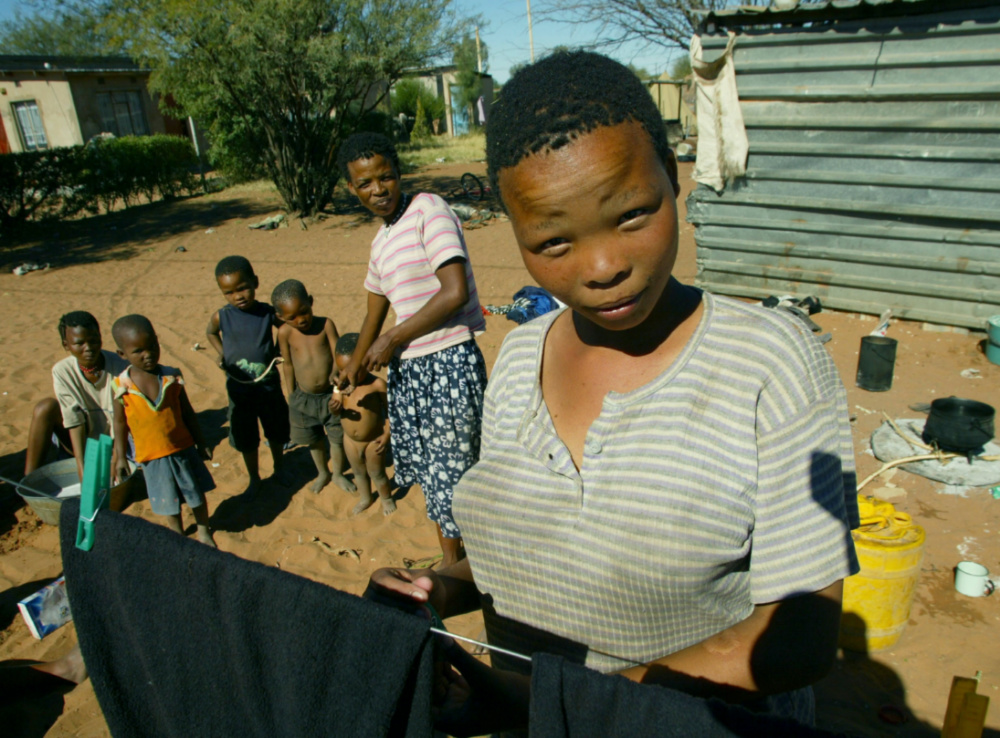Gaborone, Bostwana
Thomson Reuters Foundation
A wife in Botswana can now own land alongside her husband, President Mokgweetsi Masisi said on Thursday in a boost for women that rights groups called long overdue.
Prior to his amendment, the 2015 Land Policy stopped wives from owning land if their husbands already had some.

A female member of Botswana’s Bushmen tribe, also known as Basarwa, hangs laundry in Ghanzi township, 750 kilometres north of the capital Gaborone, on 29th July, 2004. PICTURE: Reuters/File photo.
“This amendment will allow women to be independent in marriages, and also have rights to land as any other person. We applaud this move,” said women rights activist Tunah Moalosi.
Women face a host of barriers to owning land – be it through skewed inheritance rights or restricted authority over assets – in 40 per cent of countries, World Bank research shows.
Although most African and Asian farmers are women, only about 15 per cent of global farmland is owned by women, according to Landesa, a global land rights organisation, with experts predicting increased inequality due to the coronavirus.
Botswana’s revised Land Policy gives everyone an equal eligibility to a residential plot in a place of their choice, on both state and tribal land.
Previously, only unmarried women or the wives of men who did not already own land were eligible for land rights. The discrimination left millions of married woman, widows and single mothers without access to the land where they live and work.
“The Botswana Land Policy 2015 was discriminatory against married women and did not give them equal treatment with men, and I am happy to report that this discriminatory sub-section has since been repealed,” Mass said at a virtual briefing.
The government allots deeds for land on which people have a legitimate claim but no legal rights, seeking to regularises a chaotic ownership system.
According to a government audit announced in parliament last month, 53 per cent of the 620,660 people on the government land allocation waiting list are women. The average waiting period for land is between 10 and 30 years, it said.
Masisi said on Twitter that the new policy would also protect widows and orphans who may head households.
Tshegofatso Mokibelo, 38, a widowed financial analyst, was turned down when she last applied for a residential plot because her late husband owned land and his family had claimed it.
“Women also have the right to own land,” she told the Thomson Reuters Foundation.
“I was denied a plot because my husband owned one.”





